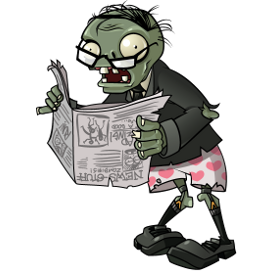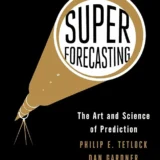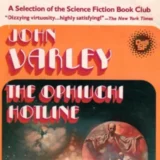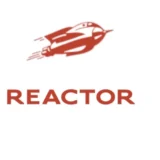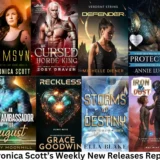WARNING: SPOILERS
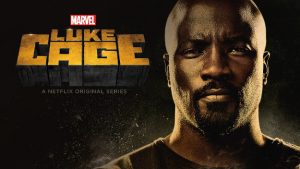 It constantly amazes me that one studio – Marvel – can produce such disparate television shows as Agents of S.H.I.E.L.D. and Luke Cage. When you consider them side by side, the differences are mind-boggling.
It constantly amazes me that one studio – Marvel – can produce such disparate television shows as Agents of S.H.I.E.L.D. and Luke Cage. When you consider them side by side, the differences are mind-boggling.
- PACE
Agents of S.H.I.E.L.D. is a typically frenetic action series, featuring multiple storylines that are constantly driving forward and an action set-piece before all major commercial breaks. It’s not that it doesn’t have contemplative moments, but they are hard to take in as they are usually swamped by the next fight, shootout or chase.
Luke Cage, by way of contrast, has a much more deliberate rhythm. There’s a fair bit of action, but it comes sporadically, at times quite unexpectedly, which gives it a much greater impact. In the meantime, if the writer decides to have a couple of characters argue about the relative merits of black crime writers such as Walter Mosely and Chester Hines (or other aspects of black history and culture), the series makes time for it.
- CHARACTER
Because it was conceived as an action/adventure series, Agents of S.H.I.E.L.D. gives viewers information about its characters on the fly, between action sequences. None of the characters is especially deep. This is exacerbated by the fact that the cast of heroes and villains is large (regulars can often be counted in double digits), which means that there isn’t a lot of time to devote to any single character’s back story. Characters in the series are types we are meant to admire (or loath), but only relatable in the most general way.
 In a sense, Luke Cage is the study of a single character: why a man who appears to be indestructible refuses to use his power to help his community. Luke Cage’s story is slowly revealed over the first season, and he has a credible arc from being self-focused to becoming a responsible actor in the world, from outsider to community protector.
In a sense, Luke Cage is the study of a single character: why a man who appears to be indestructible refuses to use his power to help his community. Luke Cage’s story is slowly revealed over the first season, and he has a credible arc from being self-focused to becoming a responsible actor in the world, from outsider to community protector.
In addition, the series takes the time to flesh out the backgrounds of its other characters: in the pivotal episode seven, for example, we see the childhood trauma that led Cornel “Cottonmouth” Stokes to lead a life of crime (as well as what drove his sister). This emphasis on character development allows us to relate to people in the series more as actual people.
- VIOLENCE
Violence in Agents of S.H.I.E.L.D. is cartoony, bloodless network violence (at least, it was until the series moved to a later time slot this season; now you get the occasional splash of blood on a wall). More important, it doesn’t seem to have any lasting effect on characters: somebody who was at death’s door (or, in a couple of cases, actually dead) one episode will have recovered sufficiently to kick ass an episode or two later (rather than having to spend years in rehab).
In Luke Cage, by way of contrast, victims of violence suffer. Detective Scarfe, for example, takes the better part of half an episode to die after being gut shot, and the pain he goes through is palpable. When Misty Knight is shot in the arm, the efforts to staunch the bleeding cause her substantial pain. Violence in the show is more real. (Although not too much: Misty is soon up and kicking ass…)
- SCOPE
Agents of S.H.I.E.L.D. takes place across the United States and, indeed, around the world. This is not unreasonable, as the world is often at stake in the conflicts on the show. Threats to the world are part of the Hero’s Journey, of course, but they aren’t something that viewers can relate to directly (although they can certainly become metaphors for possible changes to the viewer’s world).
Although it does travel outside its main focus in a couple of episodes, Luke Cage for the most part takes place in a single neighbourhood: Harlem. The concern about the quality of life for people who live there, voiced by a variety of characters over the series, is something that anybody who has actually lived in a neighbourhood can relate to.
- THEME
 With the introduction of the Sokovia Accords into the Marvel Cinematic Universe, various of its properties, but especially Agents of S.H.I.E.L.D., become an exploration of fear of the Other and how far a country’s population would be willing to go to make its citizens feel safe. This is a worthy theme, especially as the political right in many democratic countries seems increasingly willing to pander to the far right to gain political advantage. I do wonder, though, if the theme doesn’t get lost in the whiz-bang pace of the action of the show.
With the introduction of the Sokovia Accords into the Marvel Cinematic Universe, various of its properties, but especially Agents of S.H.I.E.L.D., become an exploration of fear of the Other and how far a country’s population would be willing to go to make its citizens feel safe. This is a worthy theme, especially as the political right in many democratic countries seems increasingly willing to pander to the far right to gain political advantage. I do wonder, though, if the theme doesn’t get lost in the whiz-bang pace of the action of the show.
The main theme of Luke Cage turns out to be the dysfunctions of family: the Stokes family initially, but it is eventually revealed that Luke’s main adversary, a person who had been working towards destroying his life before the show even started, was his brother. (It could also be argued that Misty Knight getting blindsided by her partner Scarfe’s corruption was a sign of family dysfunction.) While not as grand as the theme of Agents of S.H.I.E.L.D., this idea of dysfunctional families permeates the fabric of Luke Cage, and, I suspect, can be more deeply appreciated by the show’s viewers.
- GUESTS
Method Man of the Wu Tang Clan made a guest appearance on Luke Cage that didn’t seem too incongruous; I can’t imagine a context in which his appearance on Agents of S.H.I.E.L.D. could make sense.
CONCLUSION
Although it may not seem like it from this analysis, I’m a big fan of both shows. Agents of S.H.I.E.L.D. is great popcorn escapist entertainment (especially now that Ghost Rider is a member of the ensemble). Luke Cage, on the other hand, approaches great art.
Like I said, hard to believe that one studio could be responsible for both.




